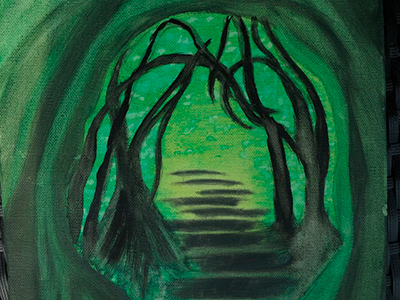Hannah Arendt y el rescate de las apariencias: condiciones ontológicas de la vida política
Contenido principal del artículo
Resumen
Descargas
Detalles del artículo

Esta obra está bajo una licencia internacional Creative Commons Atribución-NoComercial-SinDerivadas 4.0.
Los autores mantienen la Propiedad de los Derechos de Autor y Derechos de Reproducción.
Los autores/as pueden realizar otros acuerdos contractuales independientes y adicionales para la distribución no exclusiva de la versión del artículo publicado en esta revista (p. ej., incluirlo en un repositorio institucional o publicarlo en un libro) siempre que indiquen claramente que el trabajo se publicó por primera vez en esta revista.
Se permite y recomienda a los autores/as a publicar su trabajo en Internet (por ejemplo en páginas institucionales o personales) posterior al proceso de revisión y publicación, ya que puede conducir a intercambios productivos y a una mayor y más rápida difusión del trabajo publicado.
Citas
López Sáenz, M. C.: Corrientes actuales de la filosofía, I. En-clave fenomenológica. Madrid: Dykinson, 2012, p. 401.
Arendt, H., ¿Qué es la política? cit., p. 79.
Collin, F.: “Nacer y tiempo. Agustín en el pensamiento arendtiano”. Incluido en: Birulés, F. (comp): Hannah Arendt. El orgullo de pensar. Barcelona: Gedisa, 2000, pp. 77-97, p. 95.
Battán Horenstein, G.: “Corporeidad y experiencia del espacio en la filosofía de Maurice Merleau-Ponty”. Integraçao, nº 33, mayo 2003, pp. 119-123, p. 122.
Arendt, H., “The Great Tradition II. Ruling and Being Ruled”, Social Research, 74:4, 2007, pp. 941-954, p. 950. 38 Cf. Arendt, H., La condición cit., pp. 75-76.
Arendt, H., La condición cit, p. 117. Recordemos que la obra de arte como configuradora de un mundo, como apertura de un espacio, es también esencial a la visión del Heidegger posterior a Sein und Seit: “La obra, en tanto que obra, levanta un mundo. La obra mantiene abierto lo abierto del mundo”. “El origen de la obra de arte”, incluido en: Heidegger, M: Caminos de bosque. Traducido por Cortés, H. y Leyte, A., Madrid: Alianza Editorial, 1995, p. 3.
Arendt, H., “The Great Tradition. II. Ruling and Being Ruled” cit., pp. 946-947.
Aquino, T.: Suma de teología. Traducido por Martorell Capó, J.. Madrid: Biblioteca de Autores Cristianos, 2006.
Battán Horenstein, G.: “Corporeidad y experiencia del espacio en la filosofía de Maurice Merleau-Ponty” en Integraçao, nº 33, mayo 2003, pp. 119-123.
Benhabib, S.: The Reluctant Modernism of Hannah Arendt. USA: Rowman & Littlefield Publishers, 2000, 2003. Birulés, F. (comp.): Hannah Arendt. El orgullo de pensar. Barcelona: Gedisa, 2000. Birulés, F. y Cruz, M. (comp): En torno a Hannah Arendt. Madrid: Centro de Estudios Constitucionales, 1994.
Birulés, F.: Hannah Arendt: una herencia sin testamento. Barcelona: Herder, 2002. Campillo, N.: Hannah Arendt: lo filosófico y lo político. Valencia: Universitat de València, 2013. Canovan, M.: Hannah Arendt. A Reinterpretation of Her Political Thought. Cambridge: Cambridge University Press, 1992.
Fernández-Florez Hidalgo de Caviedes, L.: Hannah Arendt y el discurso antimoderno. Tesis doctoral, Universidad Autónoma de Madrid, 2007.
Heidegger, M: Caminos de bosque. Traducido por Cortés, H. y Leyte, A.. Madrid: Alianza Editorial, 1995. López Sáenz, M. C.: Corrientes actuales de la filosofía, I. En-clave fenomenológica. Madrid: Dykinson, 2012.
Moran, D.: Introducción a la fenomenología. Traducido por Castro Merrifield, F. y Lazo Briones, P.. Barcelona: Anthropos Editorial, 2011.
Villa, D.: “Beyond Good and Evil. Arendt, Nietzsche and the Aestheticization of Political Action” en Political Theory, 20:2, 1992, pp. 274-308.
Villa, D.: “Arendt, Heidegger, and the Tradition” en Social Research, 74:4, 2007, pp. 983- 1002.

